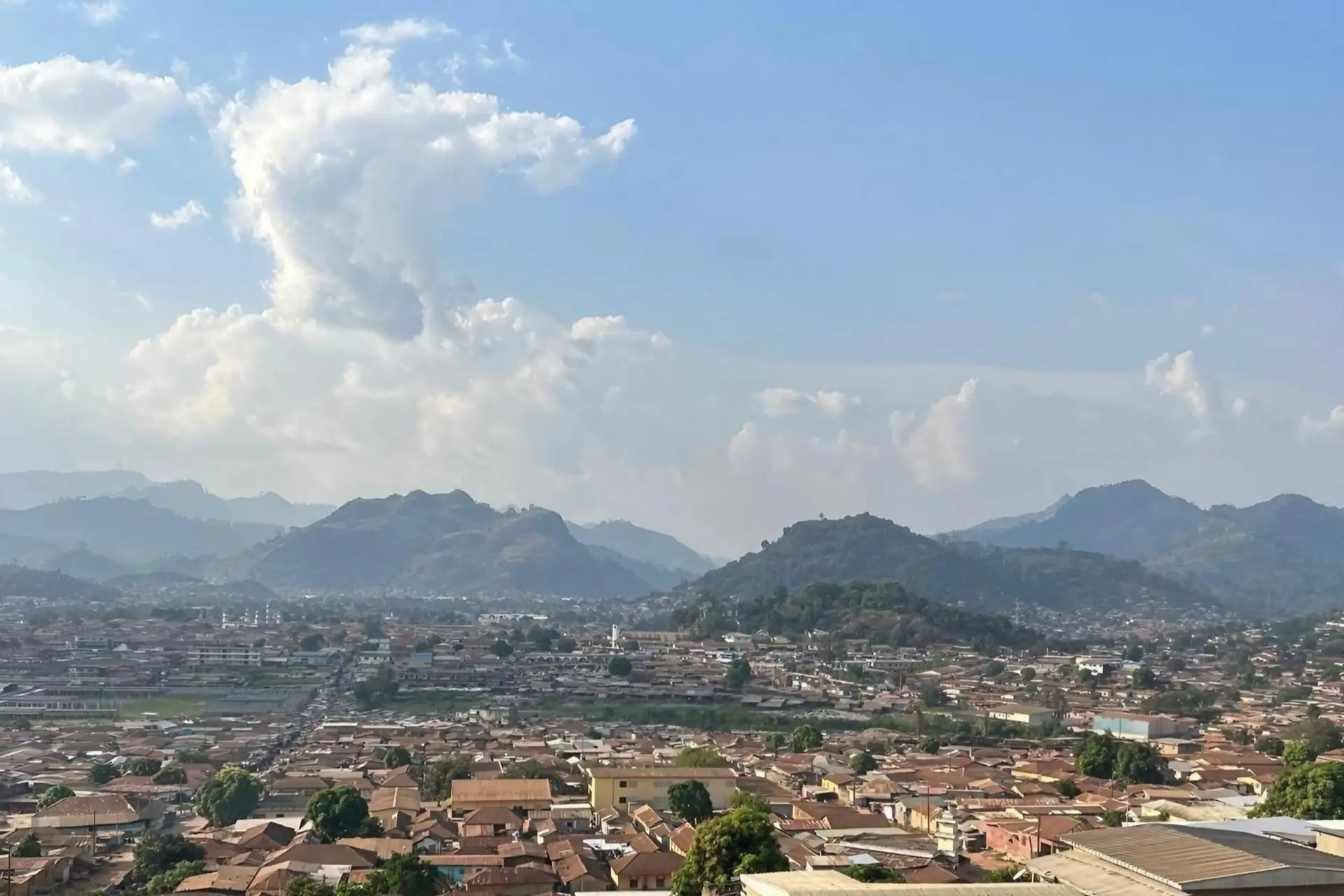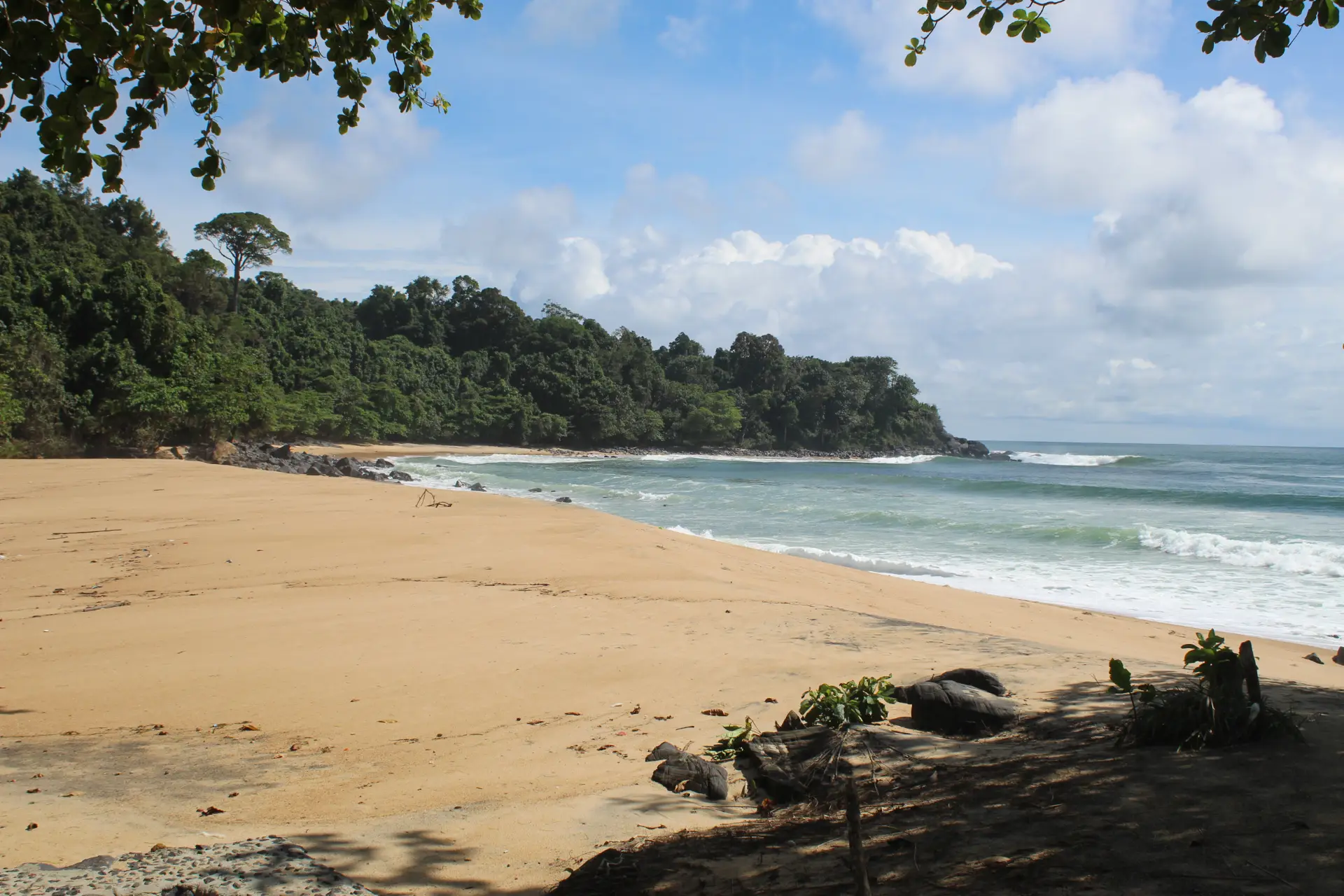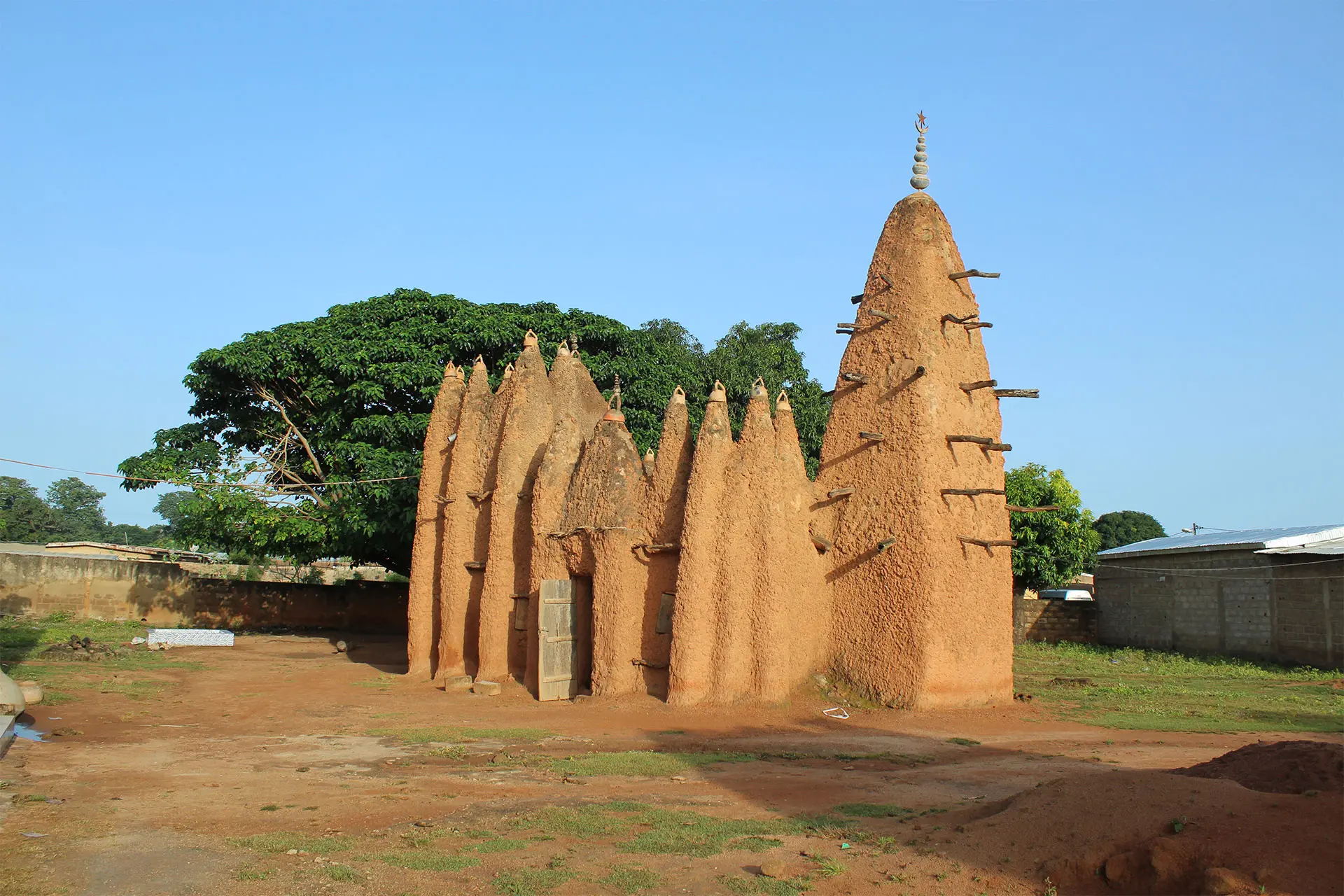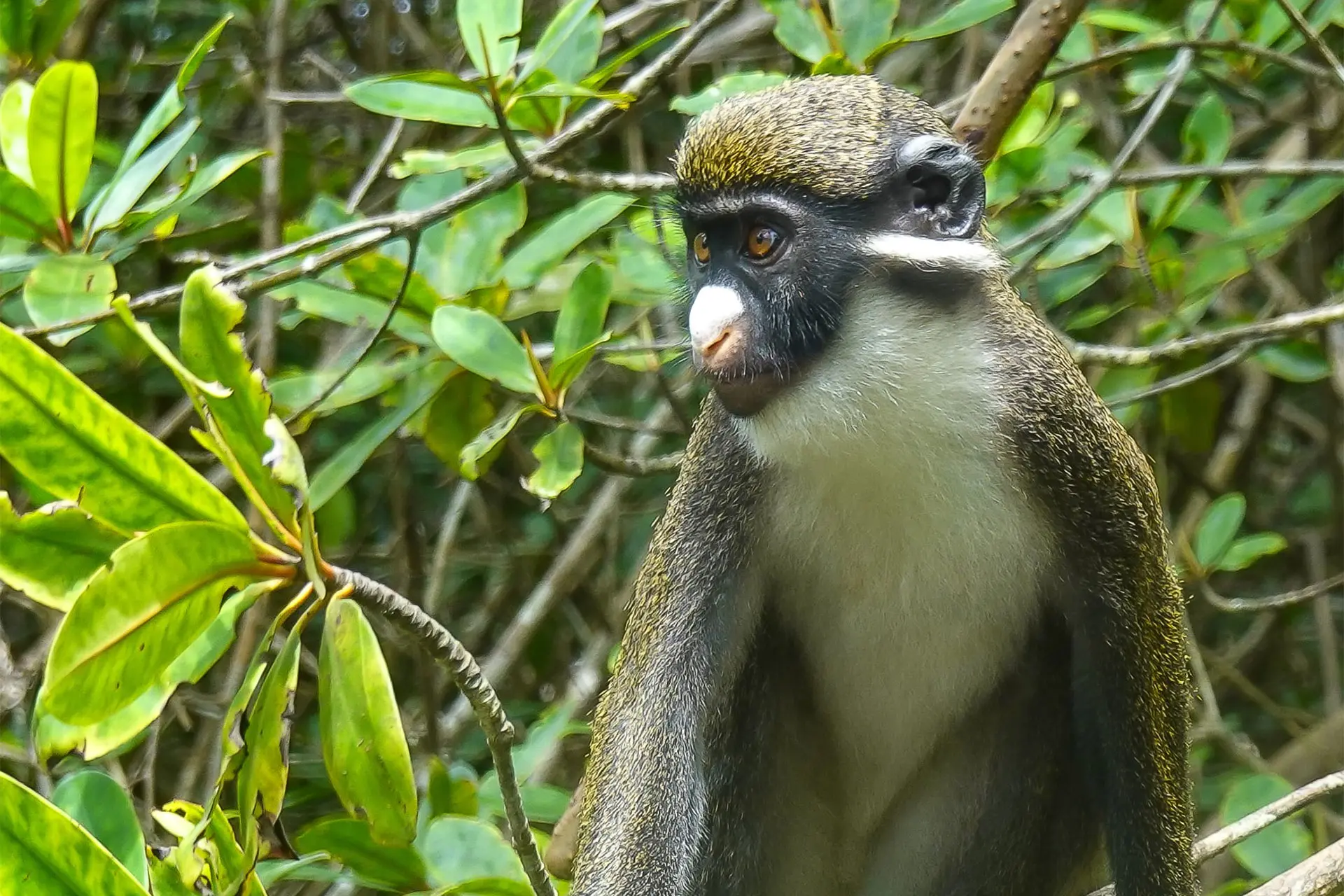Undiscovered Ivory Coast Tour
14 Days
Journey deep into Ivory Coast’s hidden cultures and timeless landscapes
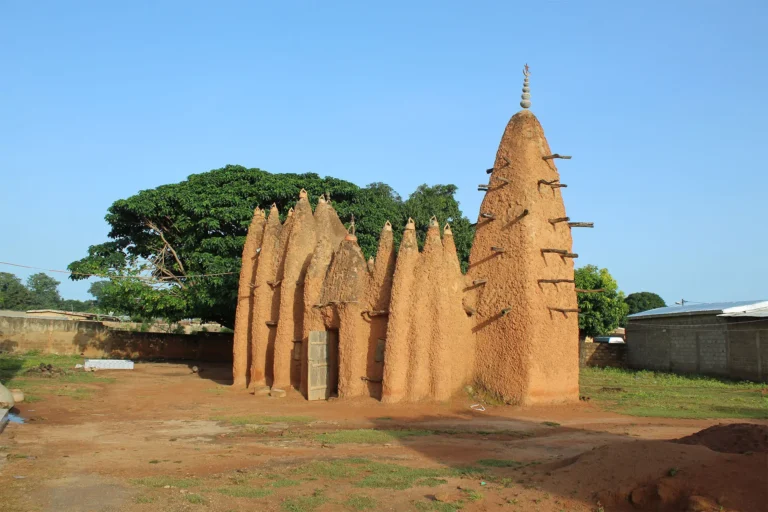
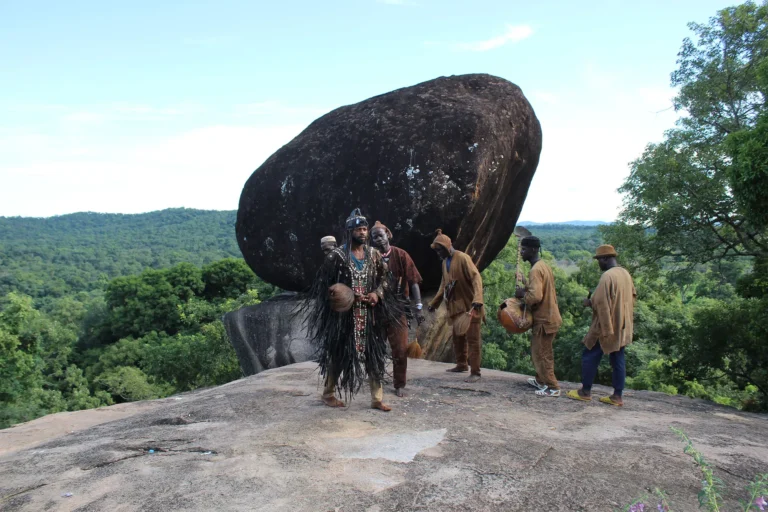
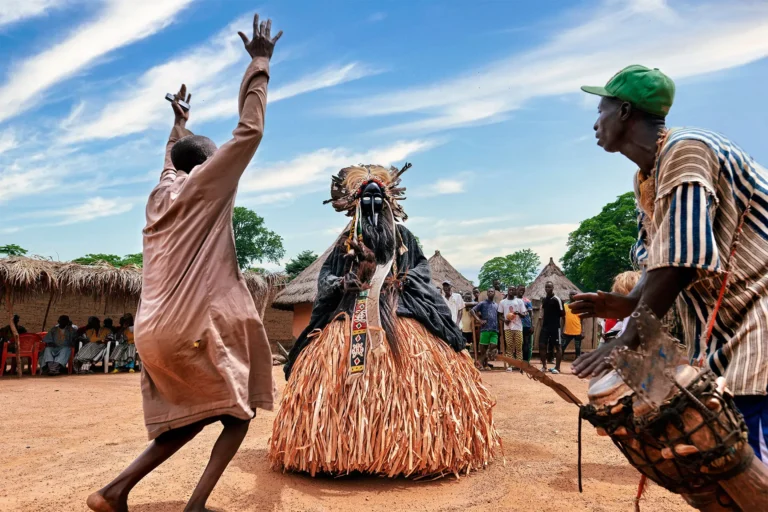
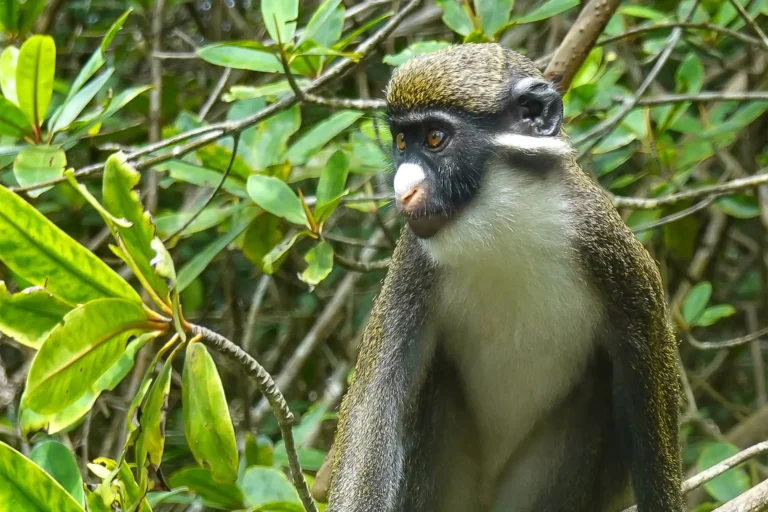
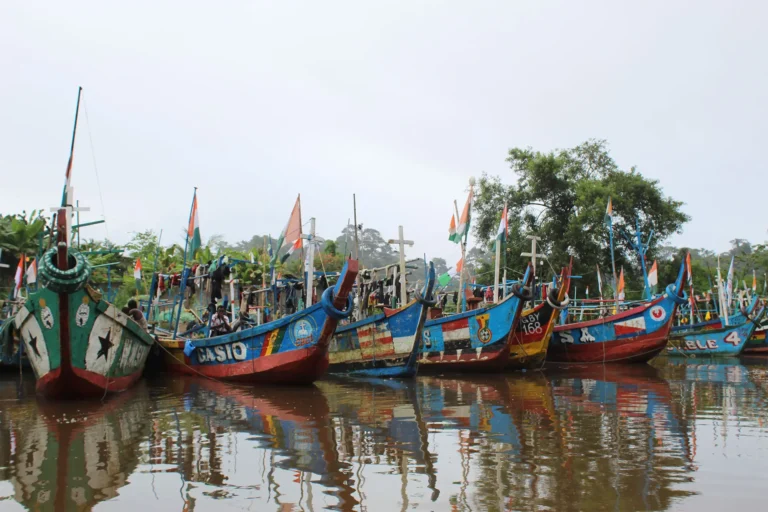
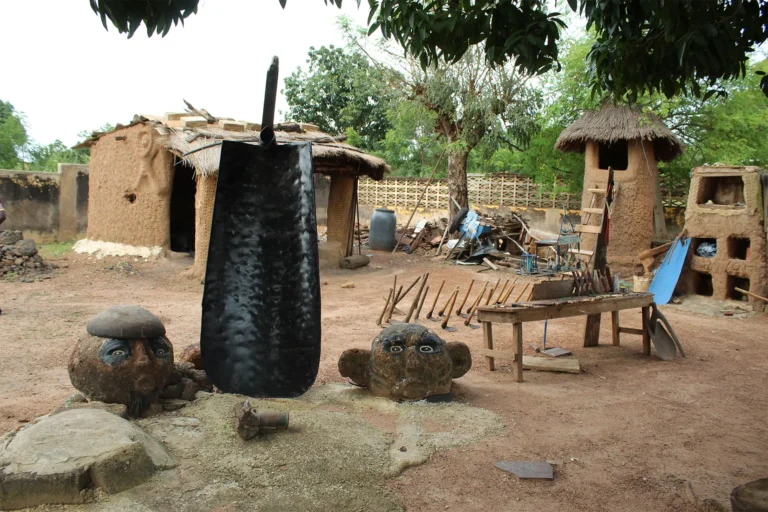
DESTINATION
ACTIVITY
DURATION
14 Days
GRADE
Easy
GROUP SIZE
Can be tailored to any group size
Highlights
- Abidjan – Abenguru (260km; Driving time today is approx. 5 hours)
- Abenguru – Yamoussoukro (250km; Driving time today is approx. 5 hours)
- Yamoussoukro – Bouake (260km; Driving time today is approx. 5 hours)
- Bouake – Korhogo (225km; Driving time today is approx. 6 hours)
- Korhogo (60km; Driving time today is approx. 2 hours)
- Korhogo – Boundiali (150km; Driving time today is approx. 5 hours)
- Boundiali – Odienne (150km; Driving time today is approx. 5 hours)
- Odienne – Man (270km; Driving time today is approx. 5 hours driving)
- Man – Excursion to Danane region (200km; Driving time today is approx. 5 hours on dirt track)
- Abidjan – Grand Bassam (50km; Driving time today is approx. 1 hour)
- Grand Bassam – Abidjan (50km; Driving time today is approx. 1 hour)
Why Book With Ashanti
Ethical, Sustainable Tours
Ashanti African Tours leads in responsible tourism, offering low-impact trips that protect nature and benefit local communities
Charitable Community Projects
Ashanti builds schools, sponsors youth teams, and funds conservation initiatives benefiting local communities in the regions they tour
Local Empowerment
Ashanti supports local businesses and uses locally-owned hotels and services, ensuring tourism benefits go directly to the communities you visit
Expert Local Guides
Ashanti employs 20+ multilingual expert guides from West Africa, offering authentic insights and personal connections at every destination
Proven Experience
Established in 2005, Ashanti African Tours brings two decades of expertise in delivering exceptional West African travel experiences
Award-Winning Reputation
Ashanti is a multi-award-winning operator (including Ghana’s Best Tour Operator 2024) with excellent traveler reviews
Tour Summary
Embark on a remarkable 14-day journey across Ivory Coast, uncovering remote communities, ancient traditions, and diverse landscapes far from the usual tourist trail. From the bustling streets of Abidjan to the Anyi monarchy in Abenguru, you’ll witness sacred dances, meet master artisans, and explore royal palaces steeped in history. Travel through the heart of Baoulé country, experience the artistry of the Senufo, and join Fulani nomads in the savannah. Discover the dramatic highlands of Man, cross mysterious liana bridges, and encounter rare cultural rituals before ending with the charm of colonial Grand Bassam. This immersive adventure blends vibrant cultural encounters, historical insights, and scenic beauty for an unforgettable West African experience.
Our Price Promise
If you receive cheaper quotes from other legitimate companies, we will try to match or improve the price for the exact same tour package offered.
More Information
Day to Day Itinerary
-
- Flight touches down in Abidjan.
- The driver will be waiting with open arms to welcome you to Ivory Coast.
- The hotel is in the capital Abidjan and the travelling distance will depend on which category of hotel chosen but will be within an hour’s drive.
- On arrival at the hotel, check in and brief on the following days’ activities.
- The remainder of the day is free time to relax and enjoy the first night in West Africa.
Accomidation- In Abidjan
-
- Depart towards Ghana, meeting with the Anyi monarchy, from the Akan large ethnical lineage group and learn about the history of the region and the role of traditional Kings in a modern republic.
- If available, the king will receive us.
- Later, meet with a community of Komians and will possibly attend the divinatory dance.
- Overnight at Hotel Royaume, or similar. (BLD)
Akan people
The origin of the Anyi monarchy goes back to the tradition of Akan large ethnical group that lives in large south West Ghana and South East Ivory Coast. They share with the famous Ashanti Kingdom of Ghana a similar lifestyle linked to the wealth of the forest and the cult of kings. The Akan people of the Ivory Coast use the word “Komian” to refer to trance, that is to say a spiritual possession. This term can also be applied to people and in this case it refers to those persons, mainly women, who have been initiated to communicate with the world of spirits through different divinatory ways, such as the throwing of shells, the vision on water or the dance. Dance is indeed the most spectacular divinatory form and is called to solve the most complex problems. Facing the interlocutor, some family members and the curious crowd, accompanied by the rhythm of tam-tams, the Komian does a ritual dance until she reaches the status of trance: the spirit will then manifest itself at the “opening of her mouth” and will indicate the nature of the problem and the way forward
-
- This morning, continue to
- Visit the Basilica of the Virgin of Peace which is a copy of that of St Peter’s in Rome.
- Overnight Hotel Royal, or similar (BLD)
Yamoussoukro
The city of Yamoussoukro (or Yamkro as it is also known) is Cote d’Ivoire’s somewhat odd administrative capital. The city was little more than a village only half a century ago but it has seen a dramatic transformation in a short space of time. The former president Felix Houphouet-Boigny began a programme of ambitious projects in the place of his birth in the 1960’s culminating in a number of grandiose administrative buildings which seem somewhat out of keeping with the rest of the country. The focal point of the city is the Basilica of our Lady of Peace which is reputedly the largest place of Christian worship on the planet and is bigger than St Peters in Rome.
-
- Enter today the territory of the Baulé people, known for their intricate handicrafts.
- In the Daloa región, attend the dancing masks of the Guro People, known as Zaouli.
- Later, continue with the dance of the Goli masks, where a round-shaped ‘lunar’ Goli mask is sub-mounted by two horns.
- Overnight at Hotel Mon Afrik, or similar. (BLD)
Baulé people
The Baulé people are of Akan lineage originating from Ghana. The Baulé have retained in common with their cousins the Ashanti comprising of a complex social hierarchy and have expanded their own cultural traditions based on those of the surrounding native villages. Their rich production of handicrafts summarises these differences: fine statues that represent the world of the spirits, weaving-loom pulleys, and masks.
-
- After a short tour around the city and its colourful market, drive north on a dirt track taking us to Korhogo.
- On arrival in the late afternoon, visit the interesting craft market.
- Overnight at Hotel Mont Korhogo, or similar – basic accommodation. (BLD)
Korhogo
The history of this town dates back to the 13th Century, and today is the capital of the Senufo, the tribe that has produced some of the greatest artworks in Africa in almost every field – sculpture, weaving, painting and blacksmith.
Senufo People
The Senufo are renowned for their complex initiation rites. Poro, the initiation of young men, is a long process which takes 21 years to be completed. It is the passage from youth to adulthood and it consists in learning the social and religious secrets that turn a young boy into a genuine Senufo man.
-
- After breakfast, drive to a remote village to witness the old technique of iron melting carried out by blacksmiths, a very rare example of traditional iron metallurgy in Africa.
- Fusion takes place overnight so leave the furnace and travel back to Korhogo.
- Later in the day, attend a Boloy, or panther dance, performed by initiated young men.
- Overnight at Hotel Korhogo, or similar – basic accommodation. (BLD)
-
- This morning, return to the remote village to see the result of the fusion.
- Leave the main road to visit the villages of the Senoufo people that still maintain today the secrets of their own handicraft production.
- In these villages, admire the large clay granaries and the sacred houses with decorated bas-reliefs.
- In the afternoon attend the Ngoro dance, or the dance of the virgin girls, which is part of the Poro initiation performed by the Senoufo.
- Overnight at Hotel Le Paysan, or similar – the most basic hotel of the tour, with no better alternatives available in the area. (BLD)
-
- Start the day by exploring regions traversed constantly by herds of zebu guided by the unmistakableFulani nomads searching for pastures.
- Visit some local Fulani villages hoping to be invited into some of the houses to experience their warm local hospitality.
- Later, travel to meet the Malinké ethnic group, and more specifically the initiated hunters, Dozo.
- Dressed in their traditional costume and with their shotguns covered with amulets, the hunters will accompany us on an excursion on foot into the savannah to give us a brief introduction to the power of plants.
- They will also accompany us to visit a Malinké village where to the rhythm of the tam-tam they will dance and demonstrate resistance to fire and knives.
- Overnight at Hotel Les Frontieres, or similar. (BLD)
The Malinké
In the vicinity of Odienne live the Malinké, descendants of the old empire of Mali. Among the great names of the history of these families is Samory Touré, a warrior that in this region alone found great support against the advance of the colonists. Among the warriors, those of the hunter-gatherer communities of the Dozo stand out for their courage on the battlefield and their mystic power that is still transmitted today during a long initiation process. Although nowadays there are no battles to fight, the respect given to this lineage has continued unabated. The Dozo (hunters) are considered to be a kind of local police. They are the guardian angels that watch over the villages to keep evil people away and act as mediators in disputes; they are also considered great healers thanks to their wide knowledge of plants and animals.
-
- Today is devoted to meeting the Yacuba, the people better known as the Dan.
- Spend time visiting some of their villages built on hillsides, characterised by big round huts with thatched roofs.
- Later, experience a traditional masks dance of the Dan.
- Then continue south.
- As Mount Tonkpi comes into view we will approach Man.
- Overnight Hotel Les Cascades, or similar. (BLD)
The Dan People
The Dan is an ethnolinguistic people of west-central Cote d’Ivoire and Liberia. They are also known as Gio or Yakuba. Some of the houses of the Dan are decorated with frescos made by women during ceremonial periods, while the men gather in a big hut to recycle iron scraps in the form of a hoe, using old scraps as a hammer and anvil. Masks are the most important art form of the Dan and are used in many rituals. The masks of the Dan appear on long stilts with dances involving memorable acrobatics and normally the participation of the most of the village under the watchful gaze of the elders in charge of the cult.
Man
The capital of the We and Guéré ethnic groups, scenic Man extends from the feet of 18 green mountains, some of which are in the middle of the city and separate different quarters. Man is one of the primary agricultural regions of the country with Cocoa, rice, coffee, and plantain plantations
-
- This morning, journey out from Man to see the Liana Bridges.
- Then return to Man for some leisure time and relax or explore some of the local craft shops.
- Later, enjoy dancing in a nearby village by the Guéré people. Overnight Hotel Les Cascades, or similar. (BLD)
Liana Bridges
The rainforest that stretches between Ivory Coast and Liberia is famous for its big liana bridges. For the local population, the origin of these bridges is shrouded in mystery. They are built secretly in only one night by young men being initiated. Crossing them is not difficult provided that the taboos imposed by tradition are respected and that heavy loads are not carried on the head or babies tied to one’s back, as the local young women used to do.
-
- This morning, travel to discover a remote forest region where the arrival of foreigners is a rare event.
- Cross wooden bridges before reaching isolated settlements of the Guéré ethnic group, experience a Jongleurs performance, an ancient tradition that is now vanishing.
- Drumming will announce the start where initiated girls with their faces painted in white Kaolin perform a unique acrobatic dance.
- This afternoon, take a flight back to Abidjan.
- Overnight Hotel Azalai, or similar. (BLD)
-
- Take a full city tour of Abidjan, the modern economic capital of Ivory Coast.
- Visit the Plateau district with its large modern buildings and skyscrapers and also cross the lagoon by boat for a view of the Plateau from a water’s perspective.
- Visit the lively market at Treichville as well as the residential area of Cocody containing interesting colonial architecture.
- Also visit the national museum which contains a fine collection reflecting the rich heritage of 62 ethnic groups.
- Then drive south towards the Ebrié Lagoon and the Atlantic Ocean to reach Grand Bassam.
- Overnight at Hotel Etoile du Sud, or similar. (BLD)
-
- Spend the morning exploring Grand Bassam with its crumbling colonial architecture.
- The old post office is a jewel of French colonial architecture and visit the Costume Museum, in the former governor’s palace, with its large outer staircase is a true architectural gem and its unique collection of tribal costumes, masks, ornaments and ethnographic photographs gives an interesting perception of the country history and culture.
- There is some time to enjoy the nice beach and later in the afternoon transfer back to Abidjan.
- Transfer to the airport and flight.
- Please do not book a flight departing before 18:00 today.
- Day use at Hotel Onomo, or similar. (BL)
Grand Bassam
Once the former rich capital of the French colony, Grand Bassam is a town built on a line of sand between the lagoon and the ocean. It has many preserved colonial buildings and during the colonial times it became the maritime leisure resort for the Abidjanese.
Arrival:
Departure:
Dates
Prices
Our tour prices vary depending on accommodation type and group size. Please contact us to discuss your tour requirements and preferences.
Our Price Promise
If you receive cheaper quotes from other legitimate companies, we will try to match or improve the price for the exact same tour package offered.
Included
- Accommodation
This will be pre-determined prior to your booking and will depend on your budget. We offer the choice from High-end, to mid-range and budget options. - Food
All our standard tour prices include breakfast, lunch, and dinner, in addition we have fruit and snacks when available on all our vehicles. - Mineral water
Unlimited mineral water is available to every participant for the duration of your time with us on all our tours. - Transportation
In a fully air-conditioned vehicle for the duration of your tour, vehicle type will depend on the group size and all our vehicles are comprehensively insured and in excellent condition. - Driver
All our drivers are highly experienced and employed on a full-time basis by our company, their focus is on your safety and comfort. On the occasions we may need to rent vehicles and drivers from outside our company, these are well known to us and are of the highest quality with your safety and comfort as their priority. - Fuel
Unlimited daily milage and all fuel is included in the tour price. - Entrance fees
All entrance and excursion fees detailed in your itinerary are included in the tour price. - Guide fees
All expert guide fees are included in the price for all our tours. - Additional services
Our company offer 24/7 professional, care, attention, and office support to all our tour participants.
Not Included
- International flights
- Visas
- Travel insurance
- Soft and alcoholic drinks
Frequently Asked Questions
Do I need a visa to travel?
Most countries in West Africa require visas for entry and this will ultimately depend on your country of origin and your chosen destination. Once you have decided on your preferred holiday destination, go to the destination page for that country on our website and you will find all the entry requirements and visa information for that specific country in the Travel Tips section at the bottom of the page. Ashanti African Tours offer tours to Ghana, Togo, Benin, Liberia, Sierra Leone, Senegal, Sao Tome and Principe and Ethiopia. If you do not see the visa information on the relevant pages, we are here to help, so please contact us
Do I need vaccinations/shots to travel?
All countries we travel to in West Africa require Yellow Fever vaccination and you must ensure you keep the certificate with your passport when entering the country as this may be requested for inspection. For up to date information on all other vaccinations you may need please consult your doctor, travel clinic or public health department six to eight weeks prior to departure for extensive up to date information on foreign travel to West Africa.
Do I need to bring medicine with me?
If you are on any medication for your personal wellbeing, then please ensure you keep this in your hand luggage prior to travel in case your main luggage is delayed. Malaria is prevalent in West Africa and you will need to take preventative malaria treatment and there are several prophylactics available so please consult your doctor or travel clinic to see which one is best for you. Imodium or similar medication is always advisable to have with you when travelling in case you experience traveller Tummy which is common when travelling to places with a different climate. Pharmacies are common in most locations here in West Africa and your guide is always available to assist you if you need to visit a pharmacy, please be open and discuss any issues you have with your guide.
Do I need travel insurance?
You must ensure that you have adequate personal insurance cover for your trip. It is a compulsory requirement for all our trips in Senegal and other African destinations and it is your responsibility to take out a suitable policy. You will not officially join our tours until evidence of your insurance has been provided to our office. This must include personal accident, medical expenses, and repatriation to your country of origin. We also strongly recommend that your policy covers cancellation (especially significant since the Covid-19 pandemic), curtailment and loss of luggage and personal effects. Please note that free insurance cover offered by some credit cards does not cover repatriation expenses.
Who will meet me at the airport?
Prior to your arrival our office will provide you with a photo of your guide and driver in addition to their personal mobile/cell phone number in case you can not locate them at the airport. The guide and driver assigned to your tour will also be holding an Ashanti African Tours sign or a sign with your name on it at the arrival hall when leaving the main building after clearing customs and immigration. Please ensure you check your guide or drivers company identification card when meeting them prior to joining our vehicle. Airports can be busy and some people can be disorientated when arriving in an unusual country so in the rare instance you cannot locate your driver or guide please wait at the arrival hall and call their phone number which our office provided you. In the unlikely event you can still not reach them then call our office 24/7 emergency number and we will ensure they locate where you are in the airport.
How much spending money will I need?
The amount of spending money you will need is determined by the type of tour you have booked with us. Most of our standard scheduled and customized tours are all-inclusive, so you only need to budget for the following: snacks, soft (not mineral water as this is always included) and alcoholic drinks and items of a personal nature. If you have booked a budget tour, then some aspects of the tour may not be included in the tour price and you will receive this information during your enquiry process.
Can I access ATM’s to withdraw money?
Access to Automated Teller Machines varies greatly depending on the country, city, or town you are in and it is common for machines to have technical problems disbursing money. It is advisable to withdraw your spending money in the capital city of your chosen destination on your arrival, alternatively your guide can arrange for money to be changed at local Forex Bureaus and banks during your trip.
Will my driver or tour guide stay with me at all times?
Our drivers and guides are always available 24/7 during your time touring with us. For our student trips they will always remain with the group, staying at the same accommodations and are always on hand in case of an emergency. On our standard tours the guide and driver are with you for as long as you need them, sometimes they stay at the same accommodations, when this is not possible they stay at a nearby accommodation but are always available if needed. You will be provided with your guide and drivers personal contact number and our clients are always given a 24/7 emergency contact number.
How much should I tip?
All our company drivers, assistants and expert local guides are employed on full time contracts with Ashanti African Tours and receive a good salary and in addition a daily bonus when on tour. Ashanti African Tours also have a company policy to tip all local site guides and hotel staff. Therefore, if any of our clients would like to tip any of our guides, site guides, drivers, or staff at hotels we use, it is at the client’s own discretion.
Can I bring donations?
It is common for our tour participants to want to bring donations for schools, hospitals, library’s, and other organisations that are in need here in West Africa. This is very much appreciated; however, we do not encourage giving out pens, books and other items directly as these are often taken off their intended recipient by bigger or older people and also breeds a begging culture in locations we visit. To ensure the donations go to their intended recipients our office will identify schools, communities and organisations in need and we will arrange for you to hand them over to a representative or person in charge. This ensures the item and donation goes to those in most need of help. Ashanti African Tours have also registered our own NGO charity “Rainforest Rescue Ghana” which builds schools, helps local communities, youth and protects rainforest and endangered wildlife in Ghana. To date (2020) we have donated over $135,000.00 USD from our company profits to our projects, if you would like more information on our projects please contact us
Will my mobile/cell phone work?
If you would like to use your phone and number registered to your home country when in West Africa it is important you inform your service provider and arrange international roaming, you will then be able to connect to local networks, however please be aware this can be expensive way to use data and make calls. It is possible for our office and your guide to arrange a local sim for your phone for you to use during your time here, for this to work please ensure your phone is not locked to a network in your own country. The local sim would need to be registered but would be a cheaper way for you to call and use the internet.
What should I pack and bring on my trip?
Due to the wide variety of tours we offer, this information will be forwarded upon confirmation of your booking in your pre-trip information pack.
Reviews
For more information on this tour
Share this trip
Award Winning Tours Across West Africa
Ethically arranged, locally guided, authentic tours that benefit locals and the environment
EXCELLENT



